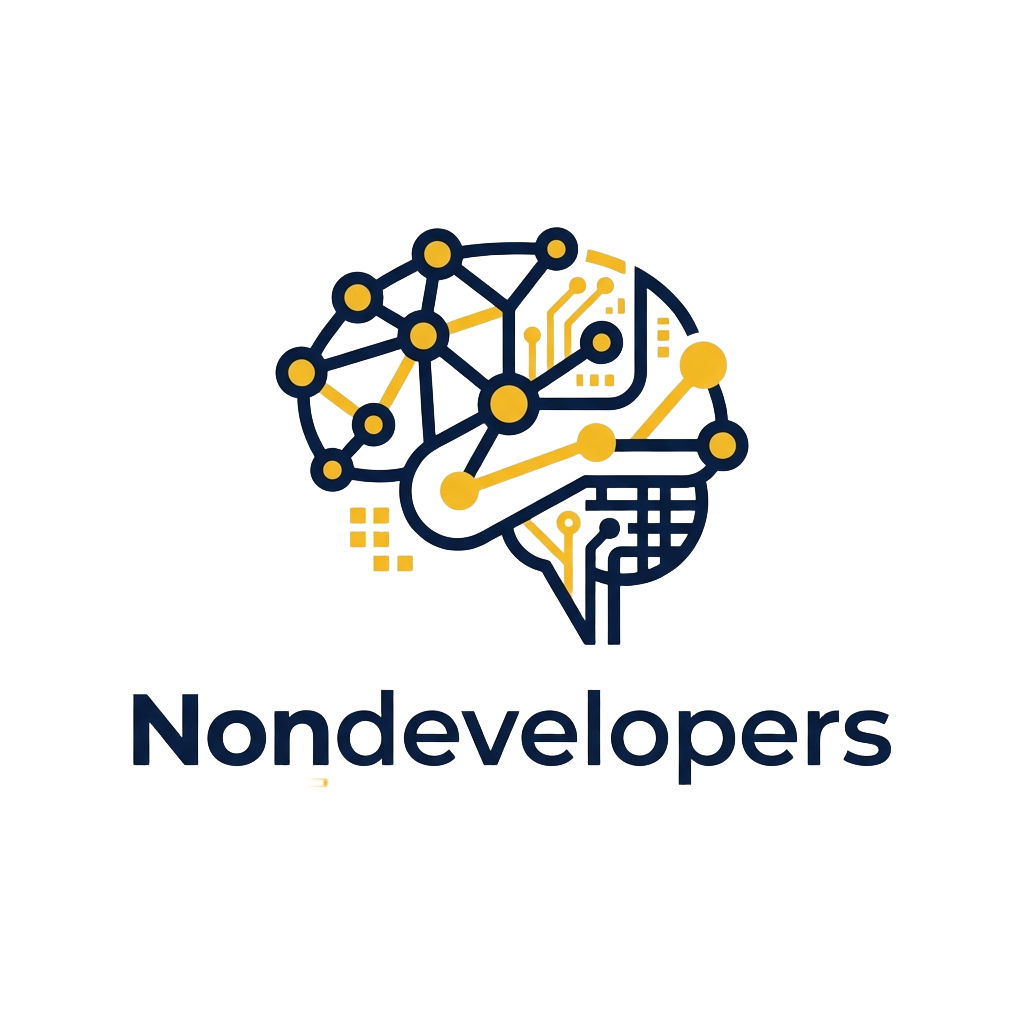Welcome to the exciting world of hacking! For those not familiar with this activity, it can seem mysterious, even intimidating at first. But for those in the know, hacking can be an incredibly enjoyable experience. In this section, we will explore the reasons why so many people find hacking fun.
First, it's important to note that hacking can take many forms. At its most basic level, it simply means exploring and experimenting with computer systems to understand how they work. For some, hacking can be a challenging puzzle that requires persistence and creativity to solve. For others, it's a way to push the limits of technology and learn new things about the world around us. Whatever the reason, hacking is a rewarding and engaging activity that can provide many benefits.
What are some of the benefits of hacking for fun? Here are just a few:
- Improves problem-solving skills
- Develops critical thinking abilities
- Boosts creativity and innovation
- Provides a sense of accomplishment
- Offers opportunities for networking and collaboration
As you can see, there are many reasons why someone might find hacking enjoyable. So if you're curious about exploring the world of hacking, go ahead and give it a try - you might just find that it's your new favorite hobby!
Key Takeaways
- Hacking can be an incredibly enjoyable activity for those who are interested in exploring computer systems.
- Benefits of hacking for fun include improved problem-solving skills, critical thinking, creativity, a sense of accomplishment, and opportunities for networking and collaboration.
- If you're curious about hacking, don't be afraid to give it a try - it might just become your new favorite hobby!
The Intriguing World of Ethical Hacking
Have you ever considered hacking as a hobby? Ethical hacking is a fascinating world that involves finding vulnerabilities in systems, networks, or applications, to ensure they are secure from malicious hackers. Ethical hacking, also known as white-hat hacking, is legal and defined as "the use of hacking skills for constructive purposes."
For those who enjoy solving complex puzzles, hacking as a hobby can provide a sense of satisfaction and accomplishment. Ethical hackers use their skills to test and secure network infrastructures and protect sensitive data. Hacking as a hobby allows individuals to channel their curiosity and creativity towards a positive end goal.
The Benefits of Ethical Hacking as a Hobby
One of the most significant advantages of ethical hacking as a hobby is learning and acquiring new skills. As an ethical hacker, you can learn how different tools, applications, and networks work and how to secure them. You can develop problem-solving skills, analytical skills, and critical thinking skills, all of which can be valuable in the workplace.
Additionally, pursuing ethical hacking as a hobby can lead to various career paths. Cybersecurity is an ever-growing industry, with a high demand for skilled professionals. Individuals who have experience and skills in ethical hacking, penetration testing, or network security can pursue lucrative career opportunities.
The Ethics of Hacking
While ethical hacking can be a fun and exciting hobby, it's important to remember the ethical implications of hacking. Ethical hackers have a responsibility to use their skills for constructive purposes, not for malicious intent. It's crucial to distinguish between ethical hacking and illegal activities, such as cybercrime. Engaging in illegal activities can result in severe legal consequences.
If you are interested in pursuing ethical hacking as a hobby or a career, it's essential to educate yourself on the legal and ethical implications of your actions. Always obtain appropriate authorization before attempting to hack or test a system or network. Remember to respect individual privacy and confidentiality.
Overall, ethical hacking can provide a thrilling and satisfying hobby for those interested in cybersecurity and technology. It offers opportunities to learn, develop skills, and pursue a rewarding career while maintaining ethical practices and responsible behavior.
Gaining Knowledge and Skills Through Hacking
Hacking is often viewed as a nefarious activity. However, it can also be a means of acquiring knowledge and developing valuable skills. Hackers are avid learners who are always seeking to expand their technical abilities and broaden their understanding of cybersecurity. By engaging in hands-on experiences and constant learning, hackers can gain a deeper insight into the intricacies of computer systems and how they can be secured.
One of the benefits of hacking for knowledge is its practical nature. Hacking provides a hands-on experience that allows individuals to explore concepts in real-world scenarios. Aspiring hackers learn by doing, experimenting with code and systems, and encountering challenges that require creative problem-solving and critical thinking skills to overcome. As a result, hacking provides a unique learning environment that fosters innovation and the development of valuable skills.
The skills acquired through hacking can be applied in a variety of fields, including software development, penetration testing, and cybersecurity. Hackers are experts in identifying vulnerabilities and understanding how to fix them. They possess a deep understanding of the intricacies of computer systems and are skilled in programming, networking, and operating system design. As such, they are in high demand across a range of industries.
Gaining Hacking Skills through Practice
One way to develop hacking skills is through practice. Aspiring hackers can engage in coding challenges, participate in CTF (Capture the Flag) events, and experiment with different technologies to enhance their understanding of cybersecurity and hone their problem-solving abilities. Additionally, hackers can join online communities and forums to connect with other like-minded individuals and learn from their experiences.
Another approach to gaining hacking skills is through formal education. Many universities and colleges now offer courses in computer science and cybersecurity, providing a structured environment for students to develop their skills. There are also a variety of online resources available, including tutorials, videos, and interactive programs, that can help individuals gain knowledge and experience in hacking.
Conclusion
By engaging in hacking for knowledge, individuals can gain practical experience and develop valuable skills. From programming and networking to critical thinking and problem-solving, the skills acquired through hacking can be applied in a variety of fields and industries. Whether pursued as a hobby or a profession, hacking is a unique and engaging activity that offers a wealth of benefits to its practitioners.
The Thrill of the Cyber Adventure
One of the most exciting aspects of hacking is its connection to the world of cybersecurity. As society becomes increasingly reliant on digital systems, the need for skilled professionals to protect these systems from cyber attacks has never been greater. Hacking provides a unique and exhilarating opportunity for individuals to explore the intricacies of digital security and to develop the skills necessary to navigate through complex systems.
Whether it's uncovering vulnerabilities in a website, testing the security of a local network, or trying to penetrate a system's defenses, the thrill of the cyber adventure is hard to match. Hacking requires a combination of technical skill, creativity, and critical thinking, making it a challenging and engaging pursuit. The adrenaline rush that comes with successfully navigating through digital mazes and overcoming barriers is part of what makes hacking such a fascinating activity.
What's more, the skills and knowledge gained through hacking can have a positive impact on the broader field of cybersecurity. Professionals who have honed their hacking skills are often sought after by organizations seeking to bolster their defenses against cyber attacks. By identifying vulnerabilities and developing countermeasures, these professionals play a vital role in ensuring the security of digital systems.
Overall, hacking provides an exciting and rewarding way to explore the world of cybersecurity and to develop the skills necessary to protect digital systems. Whether pursued as a hobby or a profession, the thrill of the cyber adventure is sure to captivate those with an interest in technology and a desire to solve complex problems.
Hacking as a Catalyst for Innovation
For those that have a passion for hacking, there are a variety of career paths that can lead to a rewarding and fulfilling profession. Hacking as a career can offer opportunities for growth, innovation, and the chance to make a difference in the world of cybersecurity.
Ethical hacking, in particular, has emerged as a vital field in the fight against cybercrime. Ethical hackers are responsible for identifying vulnerabilities in digital systems and networks, providing valuable insights to organizations seeking to strengthen their cybersecurity defenses.
Penetration testing is another area where hacking skills are in high demand. Penetration testers are tasked with simulating cyberattacks on systems, networks, and applications to identify weaknesses and vulnerabilities. These professionals play a critical role in helping organizations maintain the security and integrity of their digital infrastructure.
The Growing Need for Cybersecurity Professionals
The demand for skilled cybersecurity professionals has never been higher, with the rise of cyber threats and the increasing interconnectedness of our digital world. According to the Bureau of Labor Statistics, employment in the field of information security is projected to grow 31% from 2019 to 2029, much faster than the average for all occupations.
Hacking skills can open doors to a variety of cybersecurity job opportunities, including roles such as:
- Cybersecurity analyst
- Network security engineer
- Information security manager
- Security consultant
- Chief Information Security Officer (CISO)
The Benefits of Hacking as a Career
Aside from the financial benefits, a career in hacking can be exceptionally fulfilling, providing opportunities for personal and professional growth. Hacking requires constant learning, and professionals in the field must stay up-to-date with the latest trends, techniques, and technologies.
Furthermore, the work of ethical hackers and cybersecurity professionals can have a significant impact on society, helping to protect against cyber threats that can cause damage to individuals, organizations, and even entire nations.
For individuals with a passion for technology, problem-solving, and the desire to make a positive difference in the world, hacking can be an excellent career choice.
The Cognitive Challenges of Hacking

There is no doubt that hacking requires a certain level of skill and expertise. However, what makes hacking truly challenging is the ever-changing nature of digital systems and the need for constant adaptation and learning. To become a successful hacker, individuals must possess a combination of problem-solving skills, critical thinking, and creativity.
One of the primary reasons why individuals find hacking enjoyable is the challenge it presents. Hacking requires individuals to think outside the box, discover vulnerabilities, and identify unique solutions to complex problems. The adrenaline rush that comes with successfully navigating through digital mazes and uncovering vulnerabilities is unmatched, making it an exciting and rewarding activity.
Moreover, the cognitive challenges involved in hacking also contribute to its appeal as a hobby. Hacking involves a continuous learning process and requires individuals to stay up-to-date with the latest cybersecurity trends and technologies. Through hands-on experiences, aspiring hackers can acquire new technical skills, enhance their understanding of cybersecurity, and develop valuable problem-solving abilities.
“Hacking requires individuals to think outside the box, discover vulnerabilities, and identify unique solutions to complex problems.”
While hacking can be a fun and exciting activity, it's crucial to emphasize ethical considerations and responsible practices. Hacking for fun should never involve illegal activities, and individuals must strike a balance between their passion for hacking and their ethical responsibilities toward society.
In conclusion, the cognitive challenges involved in hacking make it an enjoyable and intellectually stimulating activity for individuals who love problem-solving and critical thinking. Hacking offers a unique opportunity to acquire valuable technical skills, stay up-to-date with the latest cybersecurity trends, and continuously learn and challenge oneself. Hacking for fun should always be pursued ethically and responsibly, emphasizing the importance of ethical practices and responsible use of hacking abilities.
Balancing Ethics and Responsibility in Hacking
While hacking can offer an exciting and intellectually stimulating experience, it is essential to balance the thrill with ethics and responsibility. The concept of ethical hacking involves using hacking skills for constructive purposes, such as identifying vulnerabilities in systems to improve security. This differs from illegal hacking, which is associated with cybercrime and can have severe consequences for individuals and society as a whole.
Aspiring hackers must understand the importance of responsible hacking practices and make a clear distinction between ethical hacking and illegal activities. It is crucial to respect personal information and uphold privacy rights when performing any kind of hacking activity. This includes obtaining consent from relevant parties before conducting any penetrative tests or vulnerability assessments.
There are professional and legal frameworks that define ethical hacking practices, such as the Certified Ethical Hacker (CEH) certification by the International Council of E-Commerce Consultants (EC-Council). Adhering to such standards is essential to avoid legal consequences and promote responsible hacking practices.
"The line between ethical hacking and cybercrime is often blurred. Therefore, aspiring hackers must strive to achieve the highest level of professionalism and ethical standards in their hacking endeavors."
Cybercrime and illegal hacking can have a significant impact on society by compromising personal information, intellectual property, and national security. Therefore, it is the responsibility of ethical hackers to maintain cybersecurity and protect against cyber threats. Proper communication and collaboration with security personnel and authorities can also contribute to the overall safety and security of digital systems.
In conclusion, ethical hacking, when performed responsibly, can provide a valuable contribution to the digital world. Aspiring hackers must prioritize ethical standards and responsible practices to make a positive impact on cybersecurity and society as a whole.
From Beginner to Advanced: The Journey of a Hacker

If you're interested in pursuing hacking as a hobby, it's essential to understand the progression from beginner to advanced levels. The journey of a hacker involves continuous learning, skill development, and practice, and it can be as thrilling as it is challenging.
The first step in the journey is to establish a strong foundational knowledge of computing and networking. This involves learning programming languages such as Python, C++, and Java, as well as understanding the basics of networks and cybersecurity. There are numerous online resources and communities dedicated to teaching these introductory skills, and they're an excellent place to start.
As you progress, you'll want to begin honing your skills in specific areas of hacking. This could involve learning more about web application security, network penetration testing, or reverse engineering. To do this, it's best to focus on a particular area of interest and explore it in-depth through tutorials, workshops, and hands-on practice.
One of the most crucial aspects of the journey is building a network of fellow hackers. Connecting with other individuals who share your interests and passions can provide valuable insights, feedback, and support. There are numerous online communities and forums dedicated to hacking, and they're a great place to seek out like-minded individuals.
Finally, it's essential to stay up-to-date with the latest trends and developments in cybersecurity and hacking. This involves continuous learning and self-improvement, as well as actively seeking out new challenges and opportunities for growth.
Conclusion
The journey of a hacker can be an immensely rewarding one, offering opportunities for personal growth, skill development, and community building. Pursuing hacking as a hobby requires a commitment to continuous learning and practice, but it can be a thrilling adventure for those willing to take on the challenge.
The Impact of Hacking: Beyond the Fun
While the thrill of hacking can be the initial draw for many enthusiasts, the benefits of this hobby extend far beyond personal enjoyment. Ethical hacking in particular can have a significant positive impact on cybersecurity and personal safety.
By identifying vulnerabilities in digital systems and networks, ethical hackers can help prevent cyber attacks and protect sensitive information. This is especially important in today's interconnected world, where cyber threats are becoming increasingly sophisticated and prevalent.
Moreover, hacking can serve as a valuable learning experience, enhancing individuals' technical knowledge and problem-solving skills. Aspiring hackers can develop expertise in cybersecurity, programming, and network administration through hands-on practice and constant learning.
Beyond personal development, hacking can also lead to career opportunities in the field of cybersecurity. Ethical hackers, cybersecurity analysts, and penetration testers are in high demand as organizations seek to safeguard their digital infrastructure.
The Benefits of Hacking for Cybersecurity
According to a study by the Ponemon Institute, organizations with a strong focus on cybersecurity have an average cost savings of $2.8 million per year compared to those with a weak focus on cybersecurity. By identifying and addressing vulnerabilities, ethical hackers can help organizations avoid costly data breaches and other security incidents.
Furthermore, ethical hacking can help raise awareness about cybersecurity and encourage individuals and organizations to take proactive measures to protect their systems and data. By promoting responsible hacking practices and emphasizing the importance of cybersecurity, ethical hackers can contribute to a safer and more secure online environment for all.
The Role of Hacking in Innovation
Hacking can also serve as a catalyst for innovation, leading to new and creative solutions to cybersecurity challenges. By thinking outside the box and approaching problems from unconventional angles, hackers can develop innovative tools and techniques that improve digital security for everyone.
For example, the concept of "bug bounties" - in which companies offer rewards for identifying and reporting vulnerabilities in their systems - has gained popularity in recent years as a way to incentivize ethical hacking and improve overall cybersecurity. This approach has led to the discovery of countless vulnerabilities and has helped to make digital systems safer for everyone.
In conclusion, while the excitement and enjoyment of hacking can be a major draw for enthusiasts, the benefits of this hobby extend far beyond personal enjoyment. With the potential to improve cybersecurity, advance innovation, and even lead to career opportunities, ethical hacking is a valuable pursuit with far-reaching positive impact.
Conclusion
Hacking is a fascinating and thrilling activity that offers a unique experience to those who enjoy exploring the complexities of technology and cybersecurity. It provides a platform for knowledge acquisition, skill development, and innovation, and can be pursued as a hobby or a profession.
The Importance of Ethical Practices
It is essential to emphasize the importance of ethical practices and responsible use of hacking abilities. As we have seen in this article, ethical hacking can be used for constructive purposes, such as securing digital systems, protecting personal information, and maintaining cybersecurity in an increasingly connected world.
The Broader Impact of Hacking
The impact of hacking goes beyond personal enjoyment and can have positive contributions to society. Ethical hacking plays a crucial role in ensuring the security of our digital world and protecting individuals from cybercrime.
The Journey of a Hacker
For those interested in pursuing hacking as a hobby, there are various resources, communities, and platforms available to help them progress from beginners to advanced levels.
Overall, hacking is an exciting activity that can offer many benefits, but it is essential to approach it with responsibility and respect for ethical practices. With the right mindset, knowledge, and skills, anyone can embark on a thrilling journey into the captivating world of hacking.
Can Hacking for Fun Ever Be Justified as Ethical?
Can hacking for fun ever be justified as ethical? Many argue that it cannot be, due to the inherent negative impact it has on individuals and organizations. Hacking, in any form, involves unauthorized access and violation of privacy, which is why hacking is unethical. It compromises security, causes financial and emotional distress, and undermines trust in technological systems. Ethical hacking, on the other hand, focuses on improving security by identifying vulnerabilities with proper authorization and the intention to protect.
FAQ
Why is hacking considered fun?
Hacking is considered fun because it involves solving complex puzzles, finding vulnerabilities, and exploring the intricate world of technology and cybersecurity.
What are the benefits of hacking as a hobby?
Hacking as a hobby allows individuals to acquire knowledge, develop valuable skills, and enhance their understanding of cybersecurity.
Can hacking be pursued ethically?
Yes, ethical hacking involves using hacking skills for constructive purposes, such as identifying vulnerabilities in systems and helping organizations improve their security.
How can hacking help in gaining knowledge and skills?
Hacking provides hands-on experience and constant learning opportunities, which can enhance technical abilities and deepen understanding of cybersecurity.
Is hacking thrilling in the context of cybersecurity?
Yes, hacking in the context of cybersecurity can be thrilling as it involves navigating through digital mazes, uncovering vulnerabilities, and combating cybercrime.
Can hacking lead to career opportunities?
Yes, hacking can serve as a catalyst for innovation and can lead individuals to pursue careers in cybersecurity, penetration testing, or ethical hacking.
What cognitive challenges are involved in hacking?
Hacking requires problem-solving skills, critical thinking, and creativity to overcome barriers and achieve success in uncovering vulnerabilities.
What are the ethical considerations in hacking?
Ethical hacking emphasizes responsible practices, distinguishing between ethical hacking and illegal activities, in order to contribute positively to cybersecurity and avoid negative impacts on society.
How can one progress from a beginner to an advanced hacker?
There are various resources, communities, and platforms available for individuals interested in pursuing hacking as a hobby, providing opportunities for skill development and knowledge enhancement.
What is the broader impact of hacking beyond personal enjoyment?
Ethical hacking contributes to securing digital systems, protecting personal information, and maintaining cybersecurity in an increasingly interconnected world.





